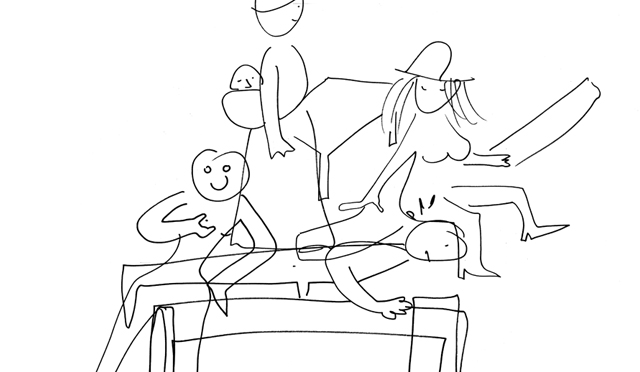Search
To search for an exact match, type the word or phrase you want in quotation marks.
A*DESK has been offering since 2002 contents about criticism and contemporary art. A*DESK has become consolidated thanks to all those who have believed in the project, all those who have followed us, debating, participating and collaborating. Many people have collaborated with A*DESK, and continue to do so. Their efforts, knowledge and belief in the project are what make it grow internationally. At A*DESK we have also generated work for over one hundred professionals in culture, from small collaborations with reviews and classes, to more prolonged and intense collaborations.
At A*DESK we believe in the need for free and universal access to culture and knowledge. We want to carry on being independent, remaining open to more ideas and opinions. If you believe in A*DESK, we need your backing to be able to continue. You can now participate in the project by supporting it. You can choose how much you want to contribute to the project.
You can decide how much you want to bring to the project.
For the last few months, we’ve been publishing articles each week related to a proposal articulated monthly. We try in this way to generate rhythms of publishing around a subject that we consider topical and of the moment, but is also historically relevant. In this sense, to talk critically about ‘globality’ is nothing new. But it is necessary to deal with the idea of “globality” from a broader perspective, one that avoids ethnocentrism and permits distinct voices and alternative subjects.
We’ve dedicated this May to considering the Global (yes, the legacy of another term that affects us, “globalization”). To take a look at this shared and yet distinct reality, from a geographical perspective, tied to territory, but not just to that. Also to what is established by frontiers and the tacit or not agreements that enable us this time, yes, to deal with next month the subject of geography and its conditions but focussing on the global subject (or to put it better, the subject in a global world).
We begin May with Xavier Acarín and “He mirat aquesta Terra”, a text with a brilliant and eccentric background that passes through the parks and gardens of New York, along the lines of colonial heritage, up to the fossils found in Lleida.
Glòria Guso wrote from Paris a review of Carambolages curated by Jean-Hubert Martin (the one of Magiciens de la Terre) at the Grand Palais. Where she noted that although the claim of reuniting objects from all eras, cultures, and geographical provenance, of types of materials and values could have generated a distinct order of the History of Art, in reality it became a sort of cabinet of curiosities where difference could become anecdotal.
Next, Amaia Fernández de Gorostiza strolled with Antoni Castel, a founding member of the Centre d’Estudis Africans in Barcelona through Making Africa, the celebrated exhibition of the Centre de Cultura Contemporánea de Barcelona (CCCB). Commenting on pieces and critical perspectives of a show that has really hit the mark by generating an alternative vision of the neighbouring continent.
Per la seva banda, Juan Canela Juan Canela signed off an excellent interview with Eva Barois de Caevel, assistant curator of Raw Material (Dakar) and assistant to Koyo Kouoh, as well as the art biennial Limerick Eva International. To discuss ways of doing, contra-hegemonic discourses and realities of the global world in a very particular but at the same time broad context.
We end on an optimistic note, with the video of Parag Khanna on TED Talks where he talks about the megacities of the future and how these will generate an emergent global network based on connectivity and communication.

A*DESK is a critical platform focused on publishing, training, experimentation, communication and dissemination in relation to contemporary culture and art, which is defined by transversality. The starting point is contemporary art, because that is where we come from and this awareness allows us to go much further, to incorporate other disciplines and forms of thought in order debate issues that are relevant and urgent for understanding our present.
"A desk is a dangerous place from which to watch the world" (John Le Carré)